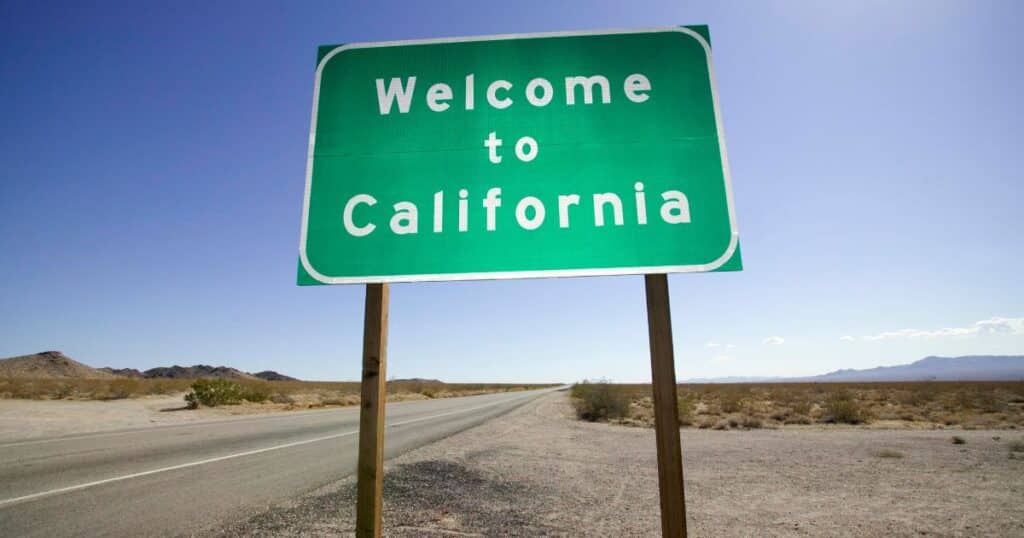In an unexpected twist in the cannabis industry, Michigan has overtaken California in the number of legal cannabis products sold. This surprising shift, first covered by SF Gate, highlights a significant change in market dynamics.
In March 2024, Michigan sold an impressive 22 million cannabis products, surpassing California’s 21.3 million. This development reflects Michigan’s rapidly growing market and increasing consumer demand, showing how the once leader in the cannabis industry, California, could be losing its grasp.

Michigan’s Meteoric Rise
Michigan’s cannabis market has shown impressive growth, driven by consumer-friendly policies, competitive pricing, and effective regulation.
According to BDSA’s point-of-sale data, Michigan sold 22 million cannabis products in March 2024, marking the first time a state has outpaced California in product volume. This milestone underscores Michigan’s expanding market, even though its total revenue, $786 million for the first quarter of 2024, remains lower than California’s $1 billion.
California’s Decline
California, despite its historically dominant position in the cannabis industry, saw a decline in legal sales, with $1 billion in revenue for the first quarter of 2024, the lowest in nearly four years. Multiple factors could contribute to this downturn:
- High Taxes and Regulations: California’s stringent regulations and high tax rates have made legal cannabis significantly more expensive than its illicit counterparts. This price disparity drives many consumers to the illicit market to save money, reducing the revenue and growth of legal businesses. Take a look at this article we wrote in 2019 about the journey of a gram of weed in the California market.
- Illicit Market Competition: The state’s weak enforcement against illegal cannabis operations has allowed the illicit market to thrive. Illicit sellers offer cheaper, untaxed products, further diverting sales away from the legitimate market.
- Market Saturation: Legal cannabis in California faces intense competition not only within the state but also from neighboring states with legal markets, such as Oregon, Nevada, and Arizona, where, again, cannabis is cheaper. This regional competition exacerbates the challenges faced by California’s legal cannabis businesses.
Why Michigan is Winning on Cannabis Products
One of the key reasons Michigan has outperformed California in unit sales is the affordability of its cannabis products. Michigan maintains one of the lowest cannabis tax rates in the country, making legal cannabis accessible to a broader demographic, including blue-collar workers.
Additionally, Michigan’s enforcement against illegal sales funnels consumers into the legal market, unlike California, where the illicit market remains abundant.
Michigan also benefits from its geographical position. Neighboring states like Ohio (set to launch soon), Indiana and Wisconsin do not yet have legal recreational cannabis markets, attracting out-of-state consumers to Michigan’s dispensaries. While this external demand may contribute only 5% to 10% of overall sales, it still provides a significant boost to the state’s market.

The contrasting fortunes of Michigan and California offer valuable insights into the dynamics of the legal cannabis market. California’s challenges highlight the pitfalls of over-regulation and high taxation, which can stifle market growth and drive consumers to illegal alternatives. Meanwhile, Michigan’s success story underscores the importance of competitive pricing, effective regulation, and accessibility in fostering a thriving legal cannabis market.
“Michigan is unquestionably better at running the legal cannabis market than California,” said Hirsh Jain, a cannabis consultant and advocate, told SFGATE. “Michigan illustrates the ways that California has squandered the opportunity.”
The trends observed in Michigan and California may shape the future of cannabis markets across the United States. As more states consider legalizing cannabis, the experiences of these two states will serve as critical case studies. Policymakers and industry stakeholders can learn from Michigan’s approach to regulation and pricing, as well as California’s struggles with market saturation and illicit competition.
















